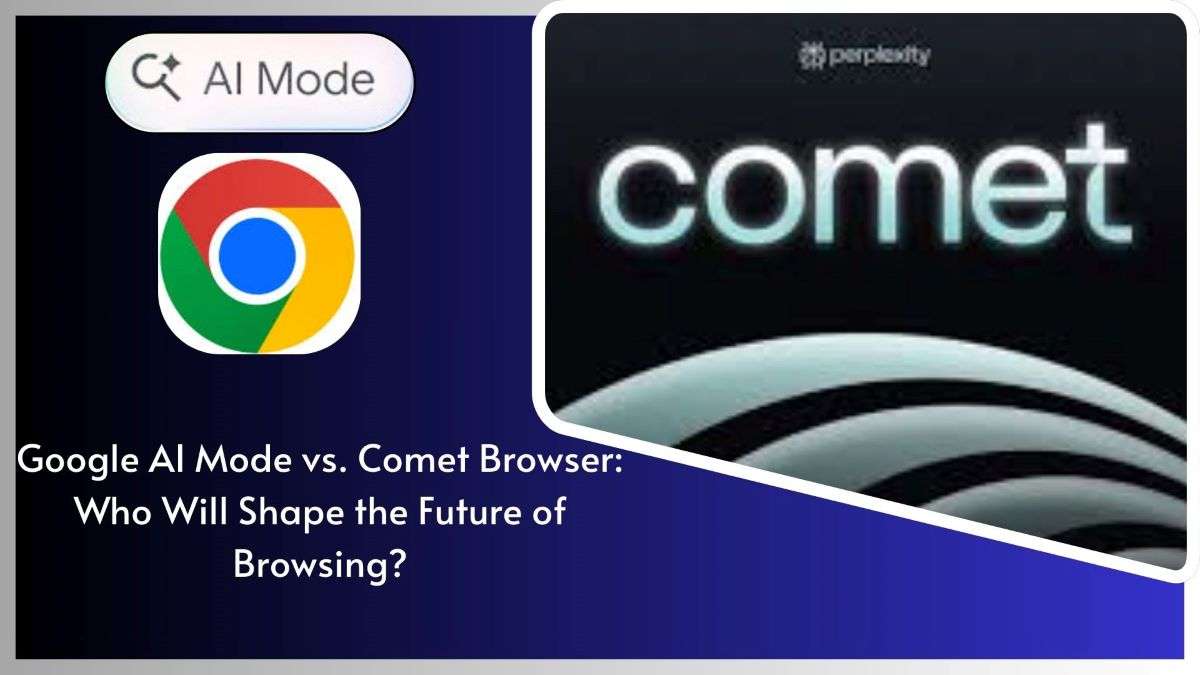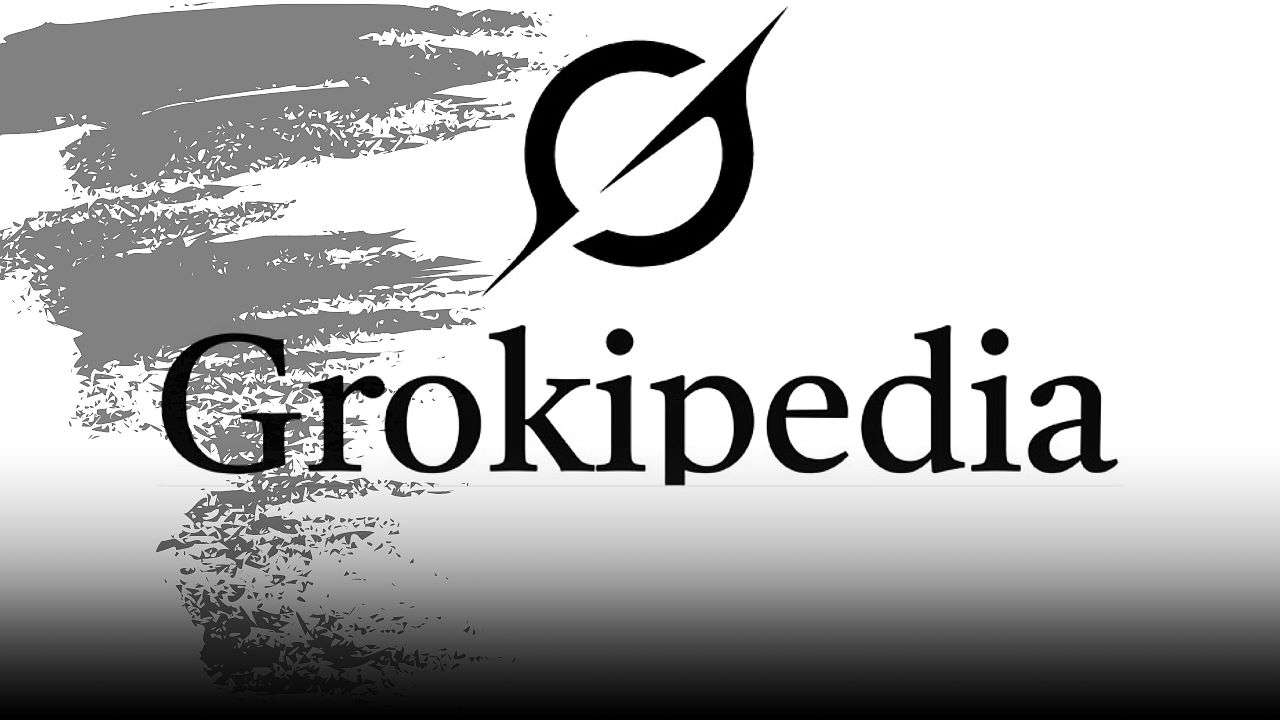The internet is changing rapidly. A few years ago, web browsers were just tools to open websites. Now, they’re becoming smart assistants powered by artificial intelligence, helping us understand and interact with information better than before.
Table of Contents
Two major players are emerging in this shift: Google AI Mode, the latest step from the tech giant to bring AI to Chrome and its services, and Comet Browser, an up-and-coming browser that reimagines the browsing experience with AI at its core.
Try Google AI Mode
The key question is: how do these two approaches differ? What are their strengths and weaknesses? And what does this competition mean for the future of how we use the web? Let’s find out.

What Is Google AI Mode?
Google’s AI Mode isn’t just a new feature—it’s a big change in how Chrome works. Google knows AI-powered tools like ChatGPT and Perplexity are challenging traditional search. AI Mode is Google’s plan to bring AI to Chrome, making browsing more intelligent and interactive.
Here’s what it offers:
- Instant Summaries: Instead of reading through long articles, AI Mode gives you the main points. Great for quick learning or research.
- Contextual Answers: You can ask questions like, “How does this news affect small businesses?” and get answers tailored to your situation.
- Workspace Integration: It connects with Gmail, Docs, Sheets, and YouTube, making it powerful for productivity.
- Smart Navigation: AI highlights important parts of a webpage and suggests helpful resources.
In short, Google wants AI Mode to be a kind of web co-pilot, helping you not just read but understand and take action.
Did you know why brave vs chrome in trend check it Fast
What Is Comet Browser?
Comet Browser is an AI-focused browser built from the ground up, without the baggage of old systems or ad-based models. Unlike Chrome, Edge, or Safari, it’s designed with AI at the heart of everything.
What makes Comet unique:
AI Personas: Instead of a single assistant, Comet lets you choose different AI characters. For example, a Research Persona for deep dives into academic work or a Shopping Persona to compare prices across sites.
- Privacy-First AI: Comet focuses on local processing and strong encryption. Your data stays with you, not sent to Google’s servers.
- Adaptive Browsing: The browser learns your habits—whether you’re a student, professional, or creator—and customizes your experience over time.
- Cross-Platform Continuity: Start on your laptop, continue on your phone, and pick up on your tablet. The AI keeps your context throughout.
Comet isn’t just about speed—it’s about making browsing more intelligent, private, and tailored to you.
Google AI Mode vs. Comet Browser
A Direct Comparison, Let’s look at how they stack up side by side
| Feature | Google AI Mode | Comet Browser |
| Platform | Built into Chrome and Google services | Independent AI-first browser |
| AI Features | Summaries, contextual Q&A, smart navigation | Personas, adaptive browsing, deep personalization |
| Privacy | Data tied to Google ecosystem | Local + encrypted AI focus |
| Integration | Seamless with Gmail, Docs, YouTube | Works independently of big tech ecosystems |
| Best For | Professionals, students, Google power users | Privacy-conscious users, researchers, early adopters |
The Advantages of Google AI Mode
Google has one big advantage: scale and existing dominance.
- Widespread use: Since Chrome is already popular, AI Mode can be adopted quickly.
- Seamless integration: It connects well with Google Workspace, good for productivity.
- Powerful AI: Trained on huge datasets, it offers strong contextual understanding.
- Familiar interface: Users won’t need to learn a new system.
For many, AI Mode will feel more like a useful upgrade than a new tool.
The Advantages of Comet Browser
Comet’s strength lies in being fresh and independent.
- No ads: It doesn’t rely on ads, so user needs come first.
- Privacy focus: It appeals to users who are concerned about data tracking by big tech.
- AI Personas: Offers customizable assistants for different tasks, like research or productivity.
- Fast innovation: Being new, it can move quickly without legacy issues.
For power users, students, or anyone who wants more control, Comet might feel like the next generation of browsing.
The Business Angle: Survival vs. Disruption
This isn’t just a competition of features it’s a battle for control and future of browsing.
For Google, AI Mode is a way to protect its position. Search ads are still a major source of income. But if users start asking AI directly instead of clicking search results, Google’s business could be threatened. By putting AI in Chrome, Google keeps itself at the center of web interaction.
For Comet, it’s about changing the game. It targets users who feel restricted by big tech. Its focus on privacy and personalization could win over those who want less control and more freedom.
Challenges Both Face
Neither solution is perfect.
- Google’s challenge: Users worry about privacy, data collection, and even becoming too dependent on Google to interpret information.
- Comet’s challenge: Convincing people to switch from Chrome, Safari, or Edge is hard—especially when it’s new and not yet widely known.
Both will have to win over users through trust, transparency, and habit.
Who Should Use What?
If you’re already using Google services like Docs, Gmail, and YouTube, AI Mode will likely boost your productivity quickly.
If privacy, control, and personalization are more important to you, Comet Browser might be the better choice designed for users who want to shape their own browsing experience.
For most people, the best approach might be to try both. These tools aren’t just browsers—they represent different ways of thinking about the future of the internet.
The Future of Browsing: From “Search and Scroll” to “Ask and Act”
Whether it’s Google AI Mode or Comet Browser, one thing is clear: how we browse is changing. The future isn’t about typing a query and clicking links—it’s about asking a question and getting a clear answer.
Google is betting on integration and ease of use. Comet is betting on freedom and personalization. The winner could shape the web as we know it.
Final Thoughts
The competition between Google AI Mode and Comet Browser isn’t just about which features are better. It’s really about different ideas. One side is a big tech company trying to keep its power by adding AI to everything it does. The other is a new player that’s trying to change what a browser can do in the AI era. In the end, this competition helps us regular people using the internet. We’re moving toward a future where browsers won’t just show us information. They’ll help us understand it, take action, and maybe even help us think.
One thing is clear: the future of how we browse won’t just be quicker it will be smarter, more personal, and driven by AI.





